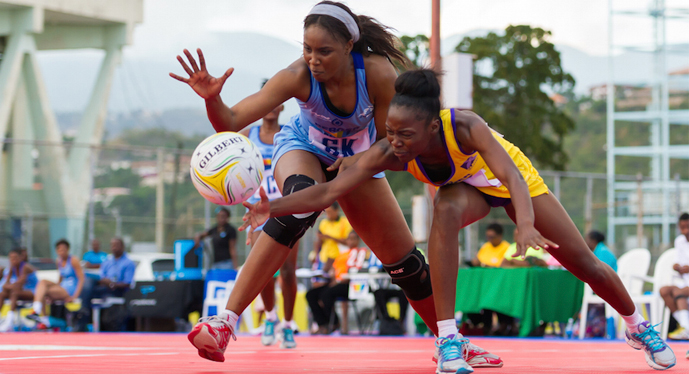
PORTLAND, Jamaica - Globally, about 19% of young women in developing countries become pregnant before the age of 18. Girls under 15 account for 2 million of the 7.3 million births that occur to adolescent girls under 18 every year in the developing countries across the globe. Adolescent pregnancies occur with varying frequency across regions and countries. What is common to every region, however, is that girls who are poor, live in rural or remote areas and who are illiterate or have little education are more likely to become pregnant than their wealthier, urban, educated counterparts.
It is estimated that around 20% of women in the Caribbean have had at least one child by the age of 19 with a considerable percentage of adolescent girls even giving birth before the age of 15. Jamaica has an adolescent birth rate of 72 (per 1,000 women aged 15-19).
Taking into consideration the importance of preventing adolescent pregnancy and promoting initiatives that help them reach their full potential, by staying in school and playing sports, Jamaica has capitalized on the country’s love of netball to bring the message across to young girls.

The “Sunshine Girls”, the country’s senior netballers are ranked 4th in the world after Australia, New Zealand and England. It’s therefore not surprising that netball is the most popular women’s sport in the country and is played throughout the school system.
UNFPA’s Sub-Regional Office for the Caribbean has teamed up with Netball Jamaica, the governing body for the sport to provide information to young ladies and girls about risky health behaviours that can impact their development. This is done within the context of the Inter-Parish Rallies, which are among the strategies used by Netball Jamaica to broaden the appeal and increase participation in the game.
Health and You, a Catalyst for Change
UNFPA has promoted the initiative Health and You, which consists of a series of information sessions with young netballers. At the most recent rally, held at the Titchfield High School, in Portland, Sashauna Morgan and Georgia Green both of the UNFPA Youth Advisory Group (YAG) encouraged the young sportswomen to take action to preserve their health and future.
“Find a trusted person to talk to about sexual and reproductive health issues, abuse and discrimination and where possible delay sexual initiation as this can lead to unintended pregnancies and sexually transmitted infections, including HIV,” said Sashauna. They were also urged to seek out leadership opportunities and engagement in wholesome programmes that can help them to form friendships and build skills.
“When I started playing netball I was always committing contact infringements and I realize now that this was because I had anger problems. Now I don’t get called for contact as much anymore, so netball helped me to be patient and to work as part of a team,” says Glacia Martin of Titchfield High School. She aspires to one day become captain of the Sunshine Girls.

UNFPA and Netball Jamaica want to support Glacia and other young girls across Jamaica to realize their potential. They recognize however, that using drugs and alcohol, early sexual initiation, and other risk taking behaviours could affect young girls’ physical and mental health.
“We are very happy for this partnership with Netball Jamaica that allows us to intervene at this early stage. Hopefully, we can intercept and prevent many chronic conditions that could result from poor health and lifestyle choices,” said Sheila Roseau, Director, UNFPA Sub-Regional Office for the Caribbean.

Marva Bernard, President, Netball Jamaica says the progamme is holistic and is designed to equip the girls with important life lessons. “Engagement in sport helps the girls to understand and implement the concept of setting personal goals and working to achieve them as well as builds their capacity to work in teams. These are important life lessons that transcend sport.” UNFPA plans to scale-up the initiative in the region.
A Deeper Look into Adolescent Pregnancy in the Caribbean
A comprehensive study on adolescent health in the Caribbean among nearly 16,000 adolescents of nine countries in the region concludes that approximately 34% has had sexual intercourse before the age of 19. Of those adolescents responding positively, 63% had their sexual debut before the age of 12. In many cases, first intercourse is forced, which highlights the underlying issue of gender-based sexual violence and strategies for prevention and response.
Among the main contributing factors to adolescent pregnancy are the early age of sexual debut and the low use of contraceptives by sexually active adolescents and coerced sex at the first sexual intercourse. For this reason, it is important to find adequate approaches for delaying sexual debut and in the case of consenting and sexually active adolescents provide access to information and sexual and reproductive health services, including modern contraceptives and address prevention and response measures for gender base violence and sexual violence.
Addressing and reducing adolescent pregnancy has already been having substantive attention from countries across the Caribbean and some advances, often sector based, could be registered. Such experiences, are being shared and replicated in order to accelerate progress other countries.
In Jamaica, one of the most promising practices related to the reduction of adolescent pregnancy has been the creation of centers for adolescent girls and mothers, as described in the State of the World Population, and a re-integration policy for the return of school age mothers to school. As such, reducing adolescent pregnancy has multiple positive effects on the lives of girls, women, boys and men, while also breaking the cycle of inter-generational poverty and contributing to national, economic and social development.
Other Resources
- State of the World Population 2014 - The Power of 1.8 Billion
- State of the World Population 2013 – Motherhood in Childhood
- UNFPA Caribbean At a Glance
- Netball Jamaica Profile
- Caricom
Editorial Credit: Althea Buchanan, UNFPA Caribbean
Photographs: UNFPA Caribbean and Netball Jamaica


